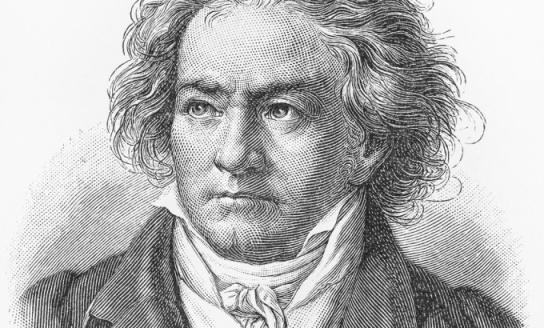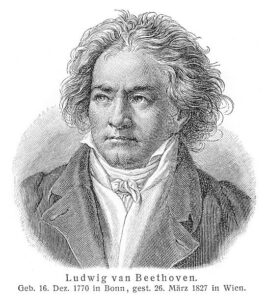
I am writing not because of my own current burnout, but because I made it to the other side without abandoning my medical career. Hopefully, my story will reveal an avenue or a perspective that is useful to some readers.
My goal is not to persuade but to enlighten.
I chose Dr Beethoven as a pseudonym because I’m slowly losing my hearing and he is admired for performing at a high level while struggling with his hearing loss in a society that did not embrace helping those with disabilities. There is a parallel with physicians who struggle with repetitive moral strain, something not understood by society or hospital leadership.
I practiced full-time emergency medicine for 31 years. The nights, weekends, holidays, understaffing, violence, chaos, etc. My family and I moved three times and I changed jobs (by my own decision) several additional times. Some moves did not concern happiness at work. In other jobs, I felt that if I stayed any longer I would never be able to wash off the stink. I felt like Corporate Medicine was stalking me as they acquired every well-run regional group I could find.
In the first part of my career, it seemed that the hospital CEO (the suits) served at the pleasure of the medical staff. These were kind and thoughtful folks who listened to and acted on the concerns of the medical staff. Those that got sideways with the medical staff soon moved on. Sometime in the 90s, the tables turned, and the suits showed more concern for the dollars than the doctors and seemed to go out of their way to antagonize the medical staff. And the suits multiplied like rats.
Simultaneously the diktats from above began. Bad EMRs chosen by non-clinicians, senseless “standards”, clinical pathways based on information later proven wrong, the “fifth vital sign”, Management Consultants with big data analytics, boarding of admitted patients, and finally the convenient abandonment of the principles of infection control because they ran out of PPE. I grew weary of holding my tongue while someone in a suit told me to put on my mask as I charted.
In the first part of my career, it seemed that the hospital CEO (the suits) served at the pleasure of the medical staff. Sometime in the 90s, the tables turned, and the suits showed more concern for the dollars than the doctors and seemed to go out of their way to antagonize the medical staff.
During my career, the US national Emergency Department census exploded. Victims of our own success. The slow death by policy would have been easier to take if there was some support on the clinical side. Could they do something meaningful to help us keep the lobby empty? Some places did a better job than others. Too often patients, with few alternatives, lingered in a lobby less comfortable than the AMTRAK station, while half the ED beds were occupied by patients waiting for an inpatient bed. The faucet ran full blast while the suits failed to pull the long malodorous tangle of hair from the drain.
What was I doing most of the times I changed jobs? I realize now that I was seeking shelter from moral injury and from the disrespect of suits not smart enough to go to regular business school. Like an artist having to kowtow to the guy that paints her house. I did understand that, to some degree, the problems were the same everywhere. I still moved because one could always hope. I also needed to pay the mortgage and educate the children.
Stay tuned for part 2

I practiced full-time emergency medicine for 31 years. I am writing not because of my own current burnout, but because I made it to the other side without abandoning my medical career.